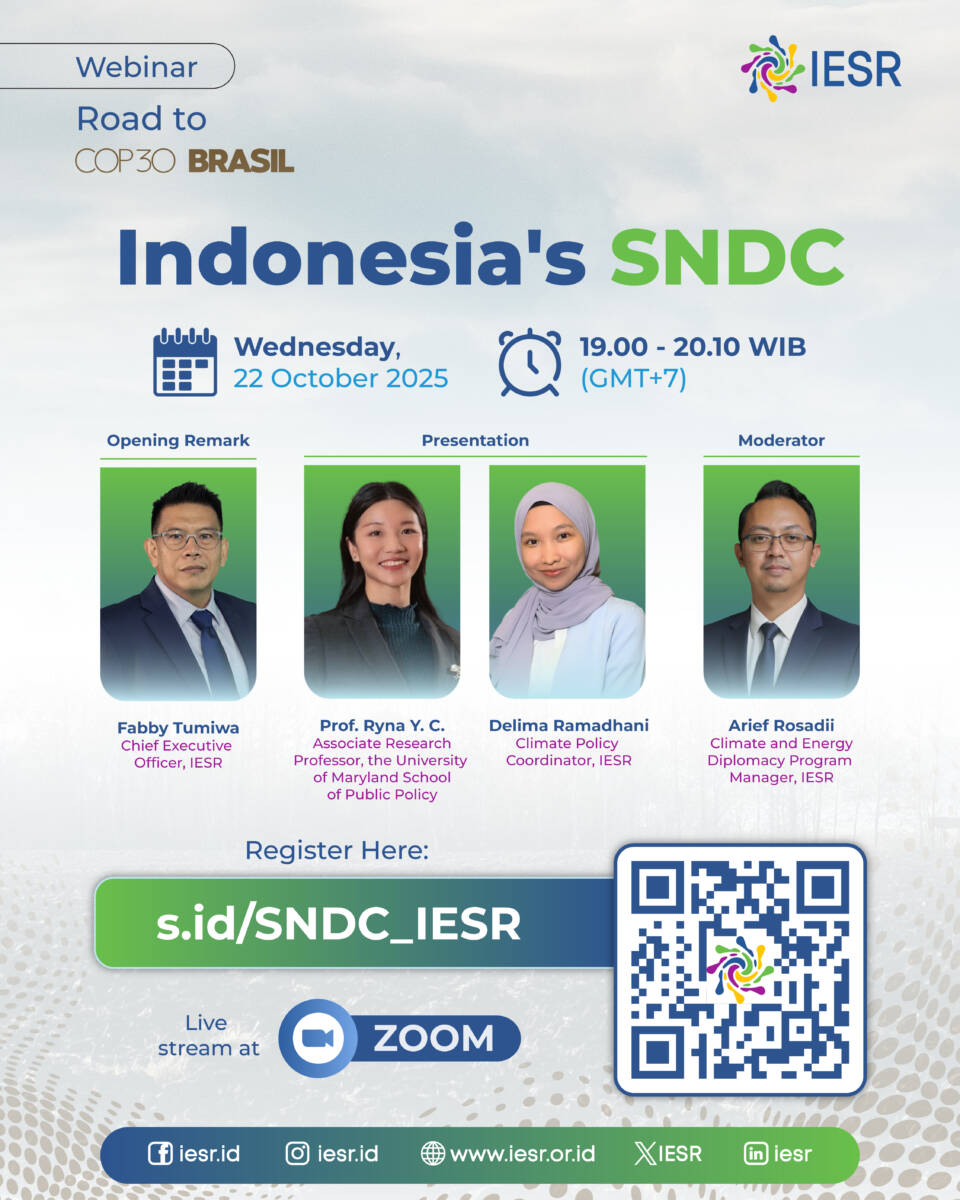
Webinar Indonesia’s Draft SNDC 3.0
Background
A total of 99 countries have submitted documents outlining their latest climate commitments, or Second Nationally Determined Contributions (SNDCs), ahead of COP30 in Belém, Brazil (UNFCCC, 2025). The Government of Indonesia is currently finalizing the preparation of its SNDC–a strategic document that will guide national climate policies for the 2031–2035 period (KLH, 2025). The emission reduction targets are determined using 2019 as the reference year, focusing on increasing the renewable energy mix, achieving the FOLU Net Sink 2030, and realizing Zero Waste Zero Emission by 2050 (KLH, 2025).
To meet its emission reduction targets, Indonesia government needs to by 459 MtCO2e across multiple sectors, including energy, forestry, waste, agriculture, and marine using emission reference used in 2019 in the amount of 1,147 MtCO2e (KLH, 2025). The draft SNDC circulated in 2024 shows that Indonesia’s unconditional mitigation target remains below what could be achieved under the 1.5°C equity pathway for the country (Climate Action Tracker, 2025).
IESR (2024) dan Center for Global Sustainability (2025) have provided several recommendations for the SNDC to enable Indonesia to achieve a 46%–49% reduction in economy-wide GHG emissions by 2035 and reach net-zero emissions by 2060. Center for Global Sustainability shows high ambition pathways all sectors achieve meaningful and more balanced emissions reductions by 2035 with key mitigation strategies in power, land and land-energy nexus, methane on waste and coal.
To facilitate dialogue of Indonesia’s SNDC, IESR plans a webinar titled “Road to COP30–Indonesia’s SNDC.” The event seeks to expand knowledge of opportunities to increase Indonesia’s climate targets and commitments.
Stronger climate plans will be a central discussion in the upcoming COP30 in Brazil. It becomes integral to:
- To understand Indonesia’s current climate policy and targets and its future emissions trajectory
- To highlight policy priorities and strategies for ambitious and credible climate targets.
Speakers
-
Fabby Tumiwa - Chief Executive Officer (CEO) - IESR
-
Arief Rosadi - Climate and Energy Diplomacy Program Manager IESR
-
Delima Ramadhani - Koordinator Proyek Climate Policy IESR
-
Ryna Cui - Associate Research Professor - the University of Maryland School of Public Policy

